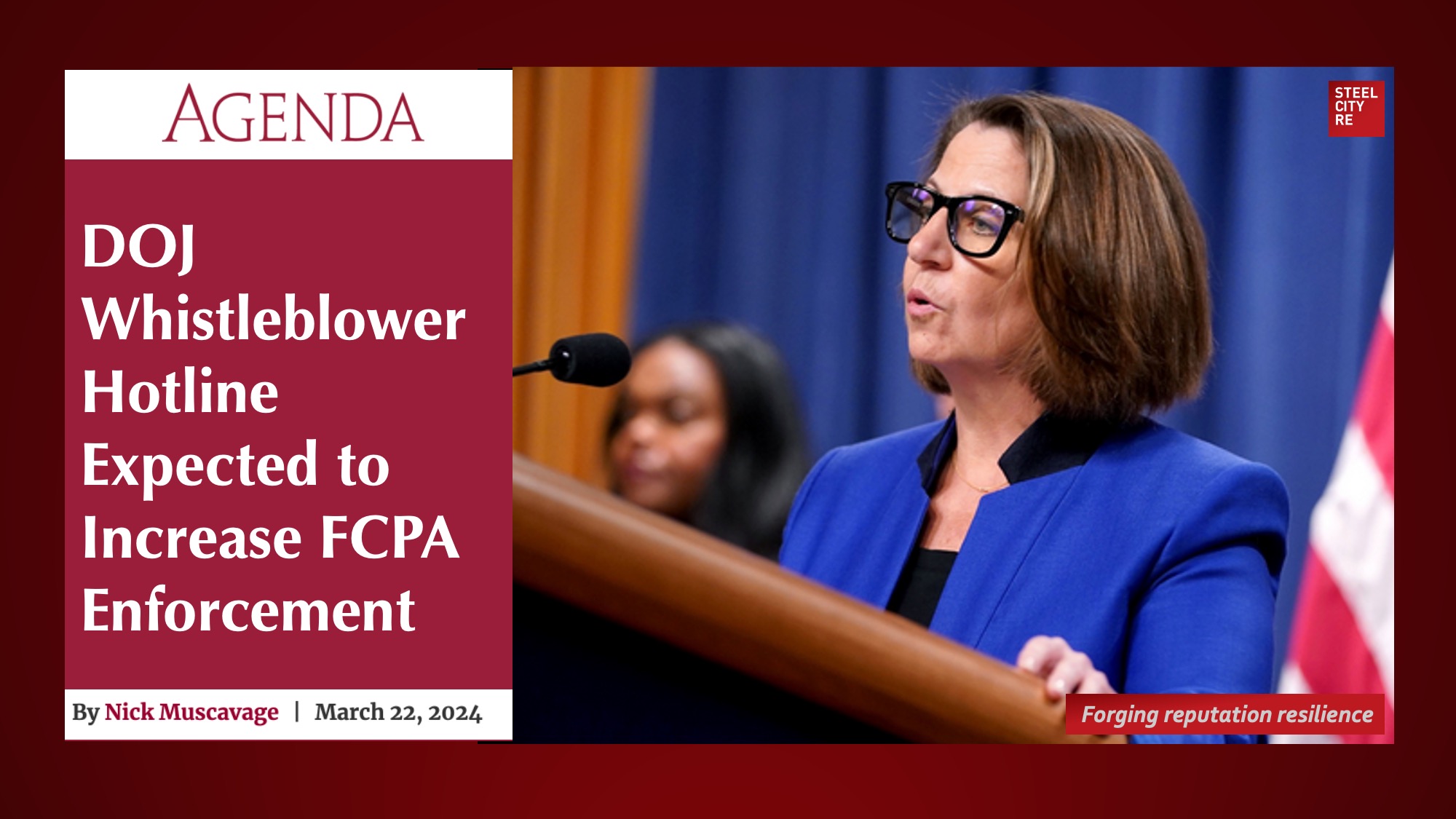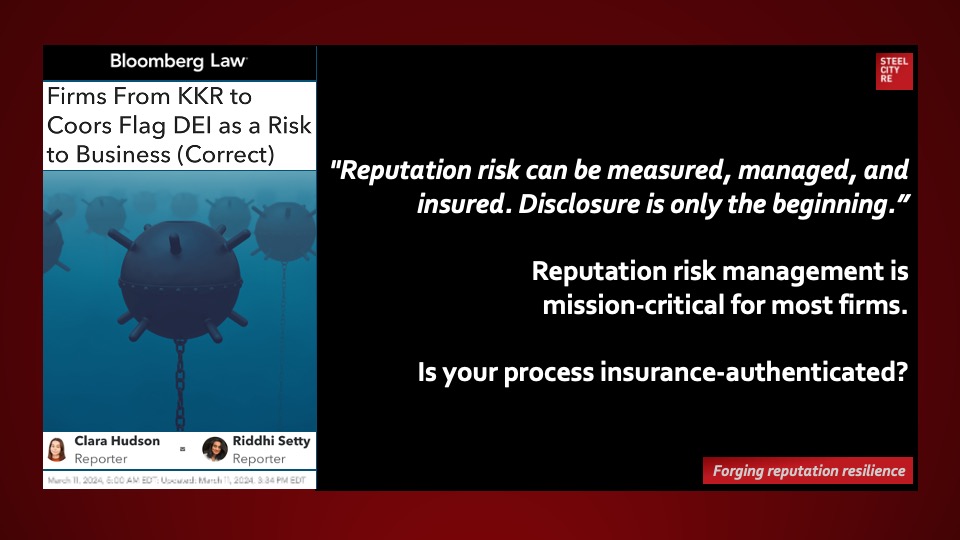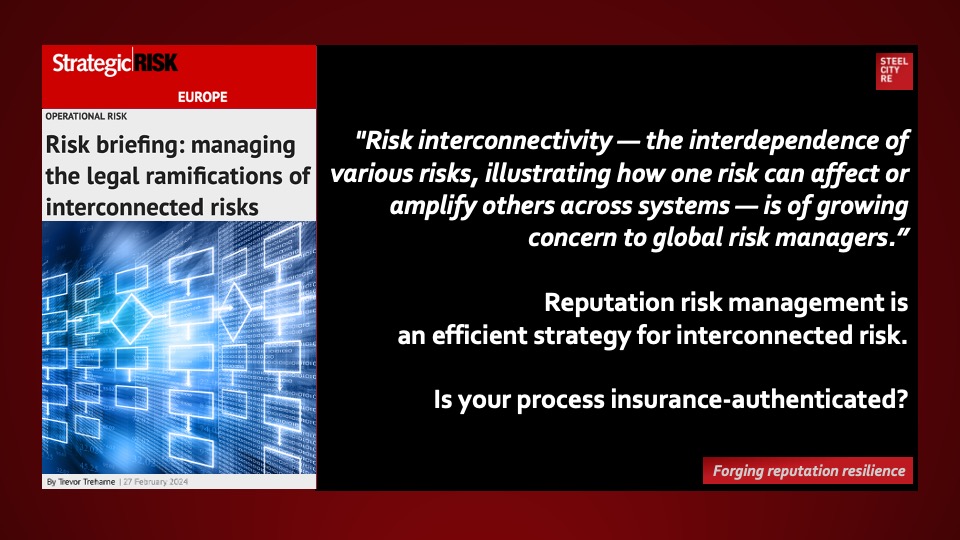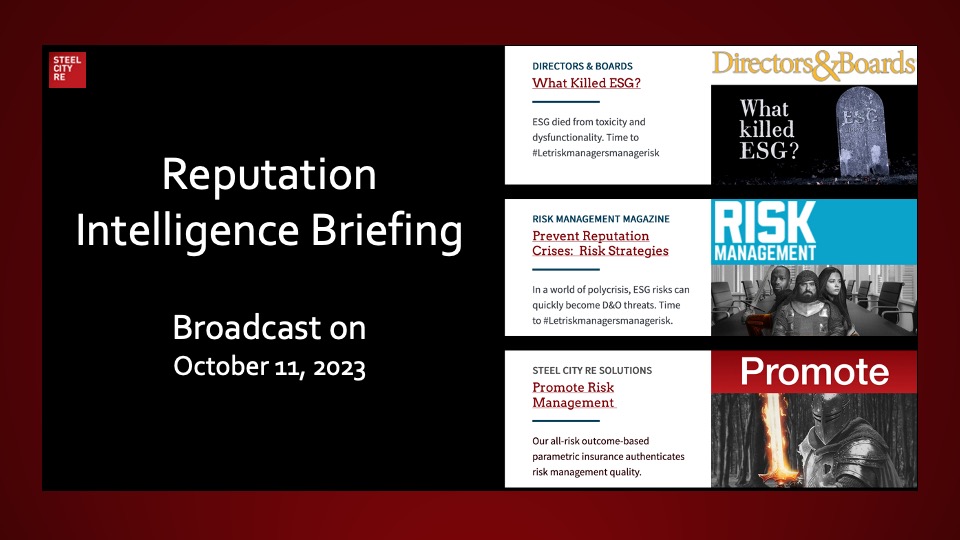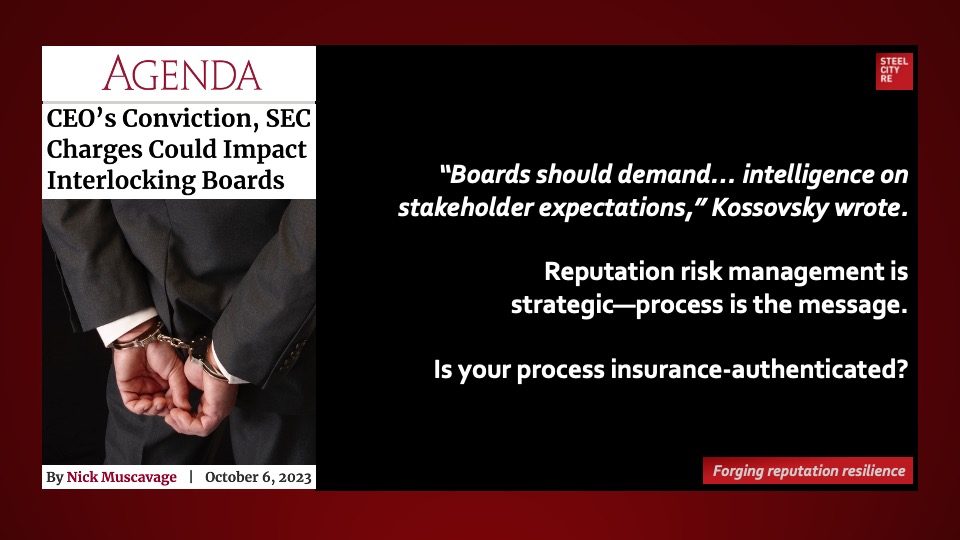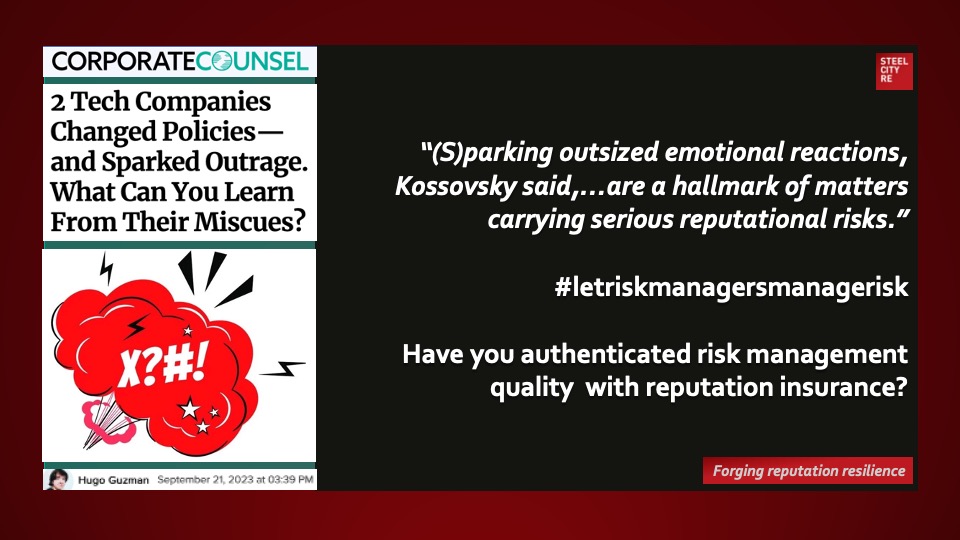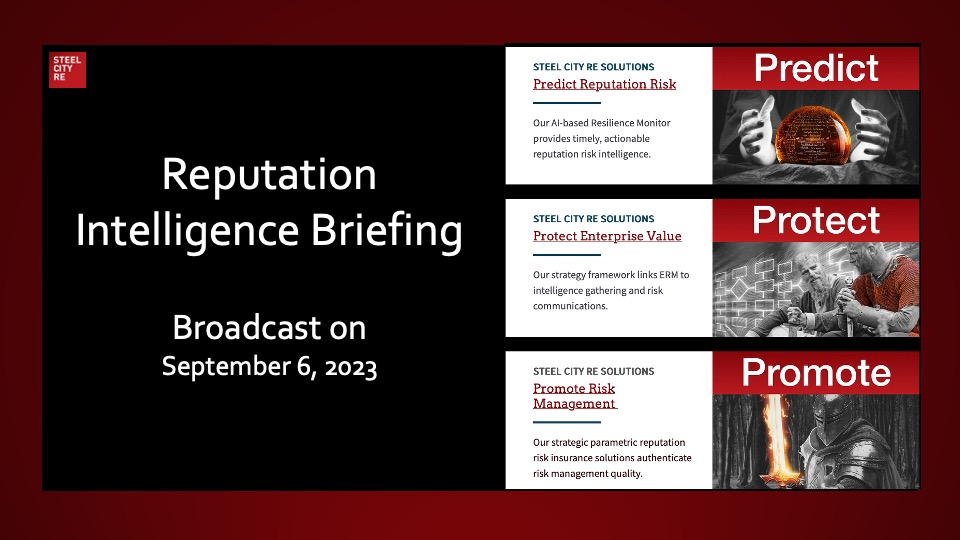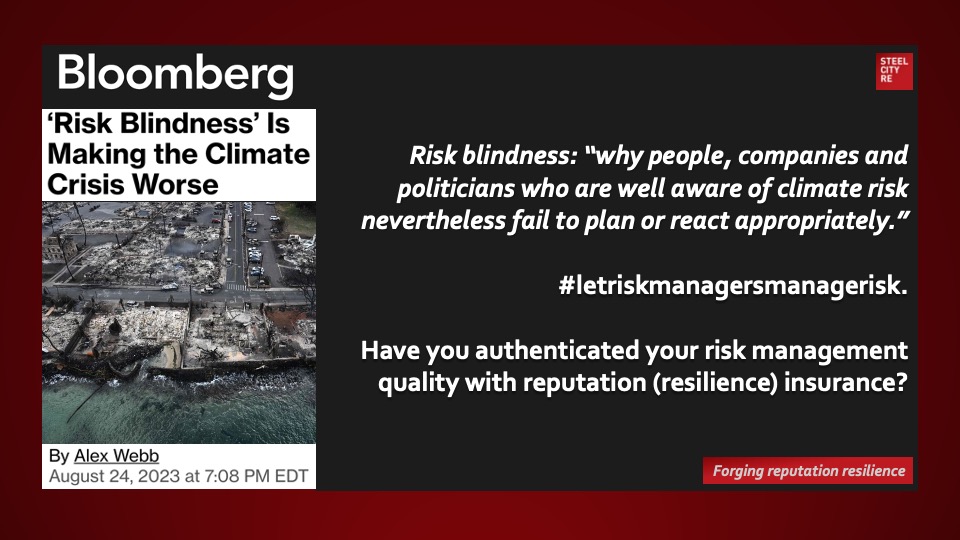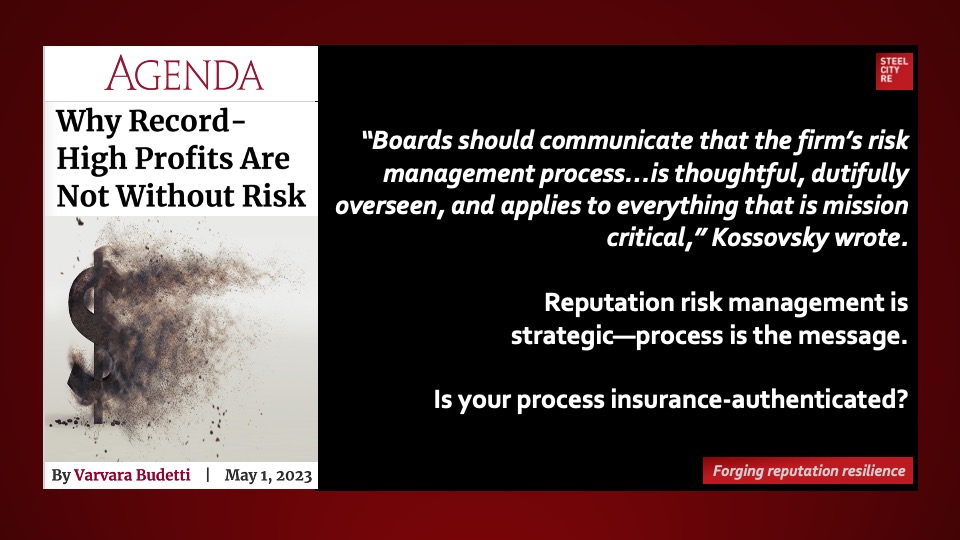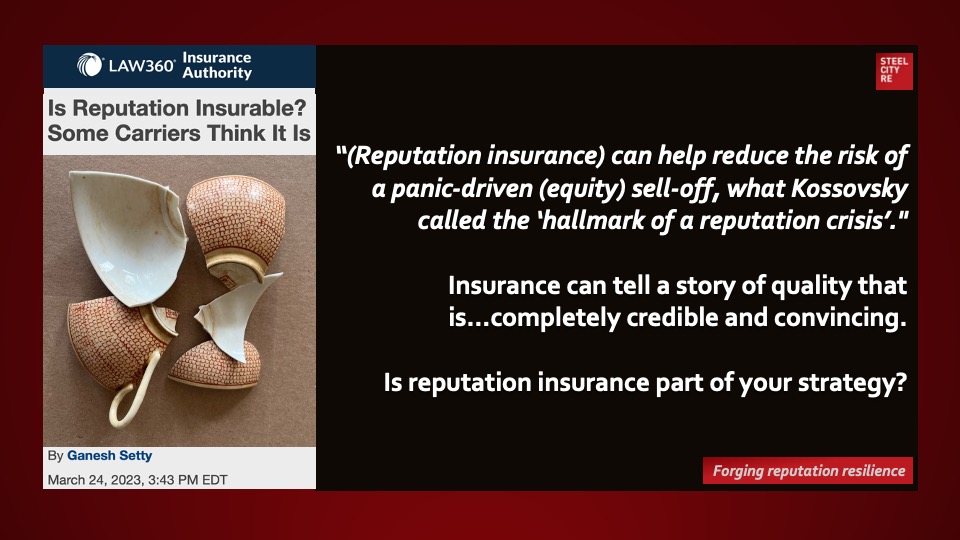March 25, 2024
The new program “will create new incentives for individuals to report misconduct,” “If anything (said a defense lawyer), I think you’re going to see more scrutiny on this, […] And the risks are increasing.” The increased risk of discovering an adverse event is not unlike placing an additional bullet in the chamber in a game of Russian Roulette. But with risks increasing to all companies, and risk being the basis for discounting value, all companies will be equally discounted. That will be hard to appreciate in a stock market that is soaring. Until it isn’t. That’s where we come in. With reputation risk forecasting, management, and insurance, Steel City Re helps companies build and prove to stakeholders their thoughtful risk management and dutiful governance over all that is mission-critical. It is an authenticated story stakeholders can appreciate and value.

